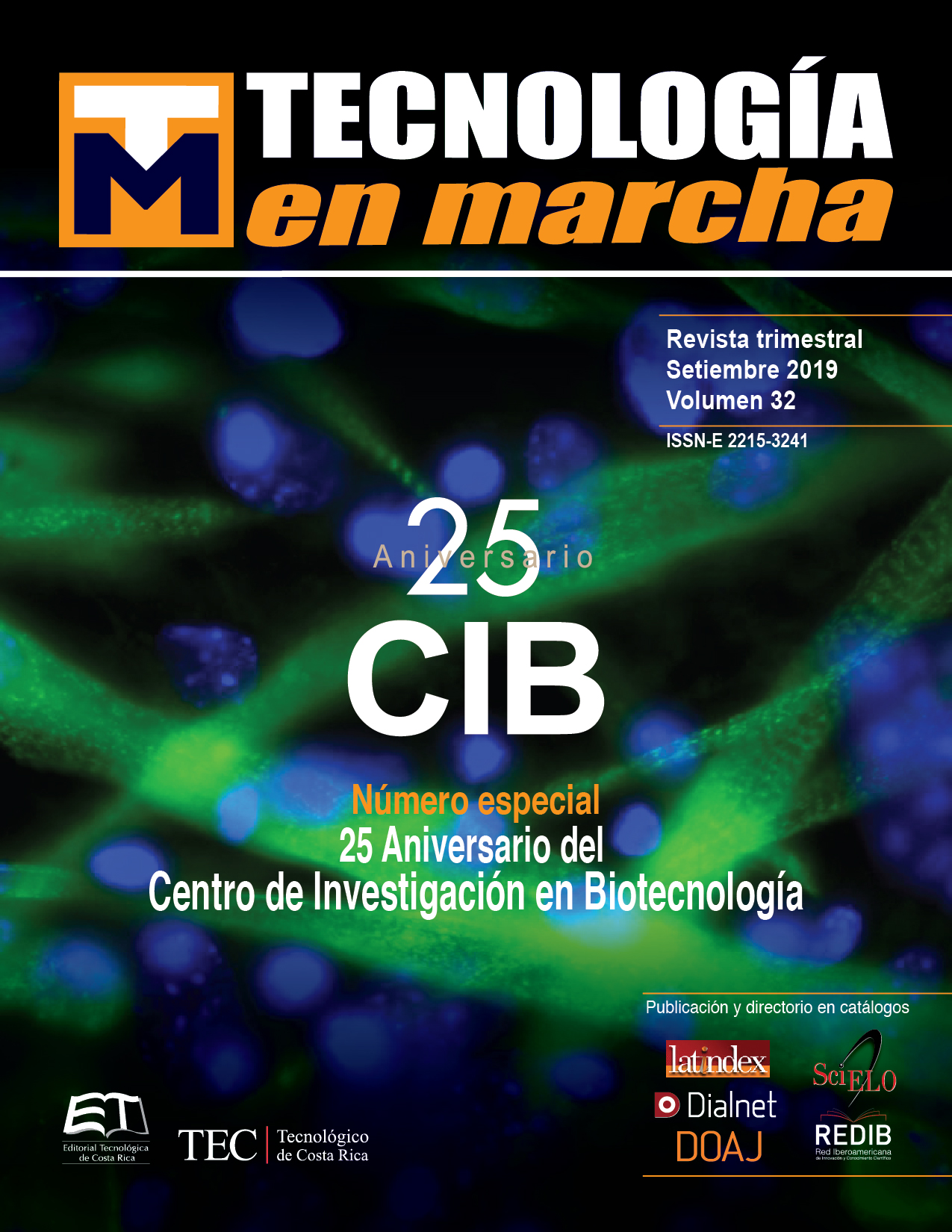Biotechnology for the study of neuropsychiatric diseases and the search for new treatments: case of neuregulins
Main Article Content
Abstract
Neuregulins (NRGs) are epidermal growth factor (EGF)-like and differentiation factors, which serve as ligands for transmembrane receptor tyrosine kinases of the ErbB family. NRG1/ ErbB4 signaling in the brain, has been involved in processes of embryonic development, neurotransmission and synaptic plasticity. Evidence suggests that different isoforms of NRG1 perform specific functions, but the extent to which they participate in the mentioned processes is not clear. Nrg1 has been associated with schizophrenia (SC) in different populations. Furthermore, an increased expression of this gene in post-mortem brains of SC patients and hyperphosphorylation of ErbB4 has been reported. Thus, hyperstimulation of NRG1/ ErbB4 signaling may represent a component of the etiology of SC. The associated pathological mechanisms are not yet known.
A research line is being developed at the Center for Research in Biotechnology (CIB) which is part of the biomedical sciences, specifically neuroscience. These studies have collaborators at the Max Planck Institute for Experimental Medicine (Göttingen) and have available unique mouse lines for overexpression of NRGs. These invaluable tools will allow us to carry out in vivo studies on the consequences of hyperstimulation of NRG1/ErbB4 in cortical circuits, relevant in the context of neuropsychiatric diseases. Besides, these inves important contribution for the development of neuroscience in Costa Rica. It is also expected that the new line of research will establish/strengthen inter-institutional and international scientific collaboration networks and will significantly increase the quantity and quality of Human Capital in neuroscience research in Costa Rica.
tigations will be an
Article Details
Los autores conservan los derechos de autor y ceden a la revista el derecho de la primera publicación y pueda editarlo, reproducirlo, distribuirlo, exhibirlo y comunicarlo en el país y en el extranjero mediante medios impresos y electrónicos. Asimismo, asumen el compromiso sobre cualquier litigio o reclamación relacionada con derechos de propiedad intelectual, exonerando de responsabilidad a la Editorial Tecnológica de Costa Rica. Además, se establece que los autores pueden realizar otros acuerdos contractuales independientes y adicionales para la distribución no exclusiva de la versión del artículo publicado en esta revista (p. ej., incluirlo en un repositorio institucional o publicarlo en un libro) siempre que indiquen claramente que el trabajo se publicó por primera vez en esta revista.

